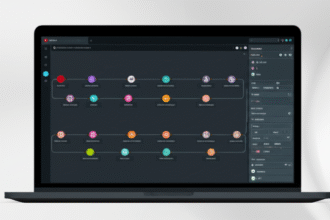As we delve deeper into the 21st century, artificial intelligence (AI) is poised to revolutionize the landscape of Information Technology (IT). From automation to data analysis, AI has begun to integrate itself into numerous aspects of the industry, paving the way for better efficiencies, enhanced decision-making, and groundbreaking innovations.
Understanding AI’s Role in IT
AI in IT primarily focuses on improving processes through machine learning and automation. Organizations leverage AI to enhance workflows and make data-driven decisions. Companies are now employing AI to manage everything from customer relationship management to complex data processing, making IT operations more robust and responsive to demands.
The Automation Advantage
Automation is one of the most significant benefits brought forth by AI in IT. By automating repetitive tasks, teams can focus on more strategic initiatives. Tasks such as software testing, data entry, and system monitoring can be performed by AI systems, greatly reducing the likelihood of human error and increasing productivity. For instance, companies are utilizing AI-driven tools to monitor system performance and automatically adjust parameters for optimal functioning.
Data Analysis at New Levels
AI can analyze vast amounts of data at astounding speeds, uncovering insights that were previously unattainable. This capability is especially crucial in decision-making processes where timely and accurate information is necessary. As organizations continue to collect data from various channels, the integration of AI allows for enhanced predictive analytics, enabling businesses to forecast trends and consumer behavior.
Challenges of Implementing AI in IT
While the advantages of AI in IT are plentiful, organizations must also navigate the challenges associated with its implementation. Issues such as data privacy, the cost of deployment, and the need for skilled professionals to manage sophisticated AI systems can hinder progress. Additionally, as AI continues to evolve, it raises important ethical considerations regarding job displacement and decision-making transparency.
Future Trends to Watch
- Increased Investment: Companies are expected to increase their investments in AI technologies to remain competitive.
- AI in Cybersecurity: AI will play a crucial role in enhancing cybersecurity measures against evolving digital threats.
- Enhanced Personalization: Organizations will leverage AI for providing personalized services to improve user experience.
Conclusion: Embracing the AI Revolution
The integration of AI into information technology is not just a trend; it is a major shift that is reshaping how organizations operate. By embracing AI, companies can unlock new levels of efficiency and insight, ensuring they remain competitive in an ever-evolving digital landscape. As we look to the future, it’s evident that those who adapt swiftly to these technological changes will lead the way in innovation.








